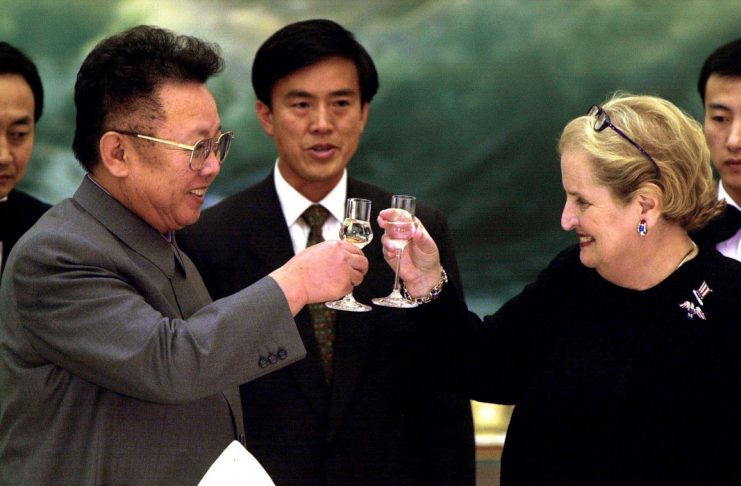Saddam Hussein revokes his August 5 decision to cease cooperation with the United Nations inspectors (UNSCOM). Iraq states in a letter to Secretary-General Kofi Annan that it is willing to resume inspections. But the U.S. and U.K. argue that the country imposes a number of unacceptable conditions with its offer, particularly restrictions on visiting presidential sites and including American inspectors. Capitulating, Iraq then informs the U.N. Security Council that it was the “clear and unconditional decision of the Iraqi government to resume cooperation with UNSCOM and the IAEA.”
As Iraq deliberates on resumption of inspections, an air and cruise missile operation (Desert Viper) is being prepared and even implemented: aircraft moving into place, armed, with targets selected. When Iraq notifies the Security Council, President Clinton aborts Desert Viper just minutes before the designated H-hour (11:00 AM EST).
In a televised address, President Clinton later says that Iraq has “backed down” and pledged full cooperation with UNSCOM. The president also makes clear that U.S. policy includes the overthrow of Saddam Hussein as a prerequisite for resumption of normal relations. The UNSC accepts Iraq’s decision and issues a statement in which it stresses that Iraq’s commitment “needs to be established by unconditional and sustained cooperation with the Special Commission and the IAEA in exercising the full range of their activities provided for in their mandates.”
The U.S. and U.K. then threaten that without full cooperation, they will strike Iraq without warning. According to the Iraq Survey Group, the events of 1998 “had so poisoned the atmosphere with UNSCOM that the relationship could not be repaired.” It was the end of inspections and the beginning of the road to certain war, but also not the last time that a president stopped an underway bombing operation, President Trump doing so vis-à-vis Iran.
